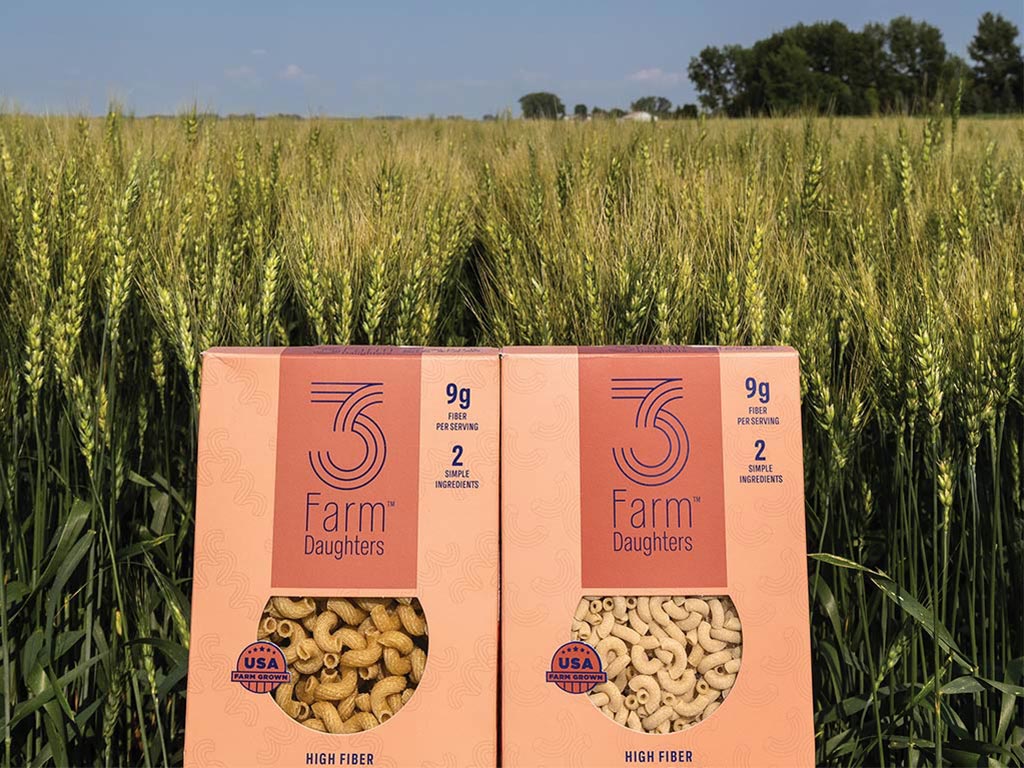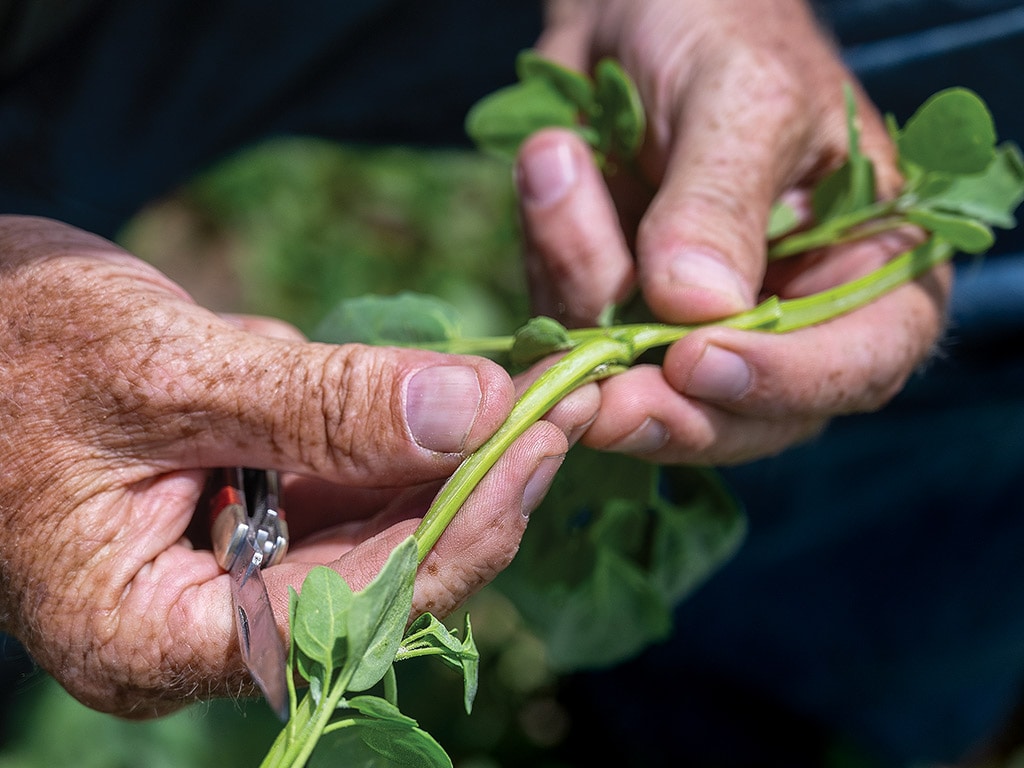Agriculture, Farm Operation December 01, 2023
Growers Alley-Oop for the Win
.
Farmers team up to transform abandoned high school into potato processing facility.
Paul New pauses work on his farm's organic certification to check in with warehouse manager, Stephanie Chandler. The first trucks of 2023 fingerling potatoes have arrived at White Rock Specialties, ready to be washed, polished, sorted, and bagged.
Two semi loads are delivered, processed and shipped from the Mosca, Colorado, facility within the day. It's slow season. On the top end, 35 full-time employees and high-tech equipment can process five semi loads daily.
"It blows me away. It used to take us a week to process a semi load of potatoes," says Brendon Rockey, co-owner of the organic and specialty potato warehouse.
Before teaming up, Rockey and New each found themselves processing specialty fingerling potatoes on their family farms.
New's family started growing organic quinoa and fingerling potatoes in the late 1980s. Quinoa was a crop and market they had to develop over years. The organic fingerling potatoes, however, were met with ready demand.
"Buyers wanted them, and we were like, 'Alright! They're in a pile, come and get them,'" New says. Of course, the buyers needed the potatoes boxed and bagged. Traditional packing sheds weren't an option for the organic specialty potatoes, so they had to do it themselves.
"It was a lot of hand labor. Between farming and packing, we got to the point we were overwhelmed," New says.
When New's family decided to grow fingerling potatoes at White Mountain Farm, they asked Rockey Farms to grow their seed.
High-producing varieties left brothers Brendon and Sheldon with more potatoes than New needed. So, the Rockeys started self processing the extras for the fresh market, too.
Fingerling potatoes caught on in the San Luis Valley. Rockey sold seed to a growing group of organic and specialty producers. They, in turn, asked New to process and market their crops.
When a recently vacant high school came up for sale, New and Rockey saw a way out of labor-intensive on-farm processing. Their families partnered to buy the building and created the specialty potato processing warehouse everyone needed.
Above. Paul New's father Ernie saw market potential of quinoa in the early 1980s, well before it was a blip on consumer radar. The family spent decades learning to grow and process the crop while developing a market. Their chosen rotation crop, fingerling potatoes, led to a partnership with another farm family to grow, process and market the two specialty crops. Creating White Rock Specialties helped create a secure market path for both products.
Teamwork. Classrooms became offices. The gym and locker rooms were consolidated to create space for the line. The volume of potatoes the facility would handle allowed for investment in technology their on-farm operations couldn't support.
The facility is small when measured against other area warehouses, but it's nimble.
"We don't pack as much, but we pack a lot more," Chandler says. "I run six colors of potatoes. They run one or two."
White Rock Specialties is able to accommodate different packaging options and is willing to do complete clean-outs between conventional and organic crops.
Equipment was modified to accommodate the small fingerlings. The line is slowed significantly to reduce injury and allow for a higher quality sort. Fingerlings have double the surface area per ton, and the premium product is expected to be perfect.
New has a farm manager, so he spends the most time in the warehouse of the partners. He builds relationships with growers and buyers, does buying and marketing, oversees personnel for maintenance, food safety, worker safety, shipping, and so much more. He jokes that he splits his time 80/80 between warehouse and farm. But he enjoys the work.
As grower and processor, New has a vested interest in running the facility in a way that minimizes waste, maximizes quality, and treats growers fairly.
"It's a lot easier to maintain margins here than as a farmer," New says, but he's able to help farmers with that, too. "We're price makers, not price takers."
New communicates with buyers to help them understand what price is necessary to ensure the specialty farmers make a profit.
Rockey notes developing the fingerling market has allowed their personal farms to remain small. They would need a lot more acres to grow the volume of potatoes needed to turn a profit in the conventional market.
"We need a solid market for our specialty products. We really had to take this step to keep our farm viable," New says. "There are easier routes to take—for sure—but it's been rewarding." ‡
Read More

AGRICULTURE, SPECIALTY/NICHE
Passionate About Pasta
These North Dakota sisters parlayed wheat from Midwestern farms into a thriving pasta business.






